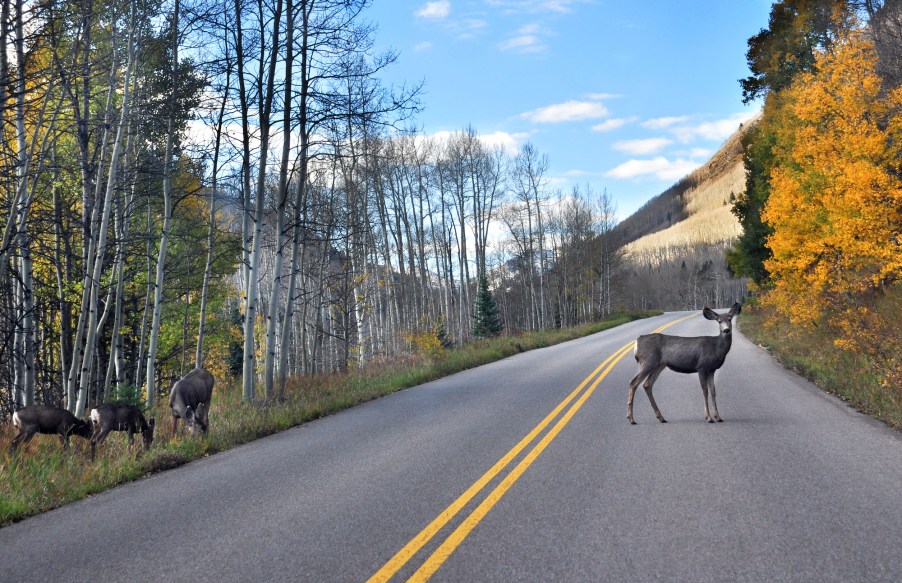
Company’s Deer Whistles for Cars Are a ‘Sham,’ Lawsuit Claims
You’re driving on the highway, headed home from a long day at work, when something darts out in front of you. It slams into your car, and the next thing you know, you’ve got major damage to your vehicle and an injured deer to boot. Could deer whistle accessories on your car have prevented this?
Here’s a closer look at deer whistles and if they actually work. But according to a recent class-action lawsuit, they’re a sham.
What are deer whistles?
There are dog whistles make dogs come when they hear it. There are also whistle tips designed to go on a vehicle’s exhaust pipe to make it whistle and sound louder. But what exactly is deer whistle, and why would you want one?
A deer whistle is a device you can install on your vehicle’s front bumper or hood. The idea is that it emits a dual-pitch sound. It’s supposed to alert nearby deers that you’re driving through so they stay away from your car.
It sounds great on paper. But does it work, or is it a waste of money? One class action lawsuit from former consumers says deer whistles are a “sham.”
Bring in the lawyers
According to ClassAction.org, attorneys on behalf of consumers filed a lawsuit on February 12, 2021, against Hopkins Manufacturing Corporation. The company produces the Bell Deer Warning, a type of deer whistle. A New York resident bought the device, only to learn it wasn’t worth the money he paid for it, the lawsuit claims. The suit cites multiple news reports published over the years that Hopkins was aware of but ignored, the lawsuit alleges.
The lawsuit refers to a peer review study stating, “[D]eer in the road continued to travel in the direction they were headed. Fawns that lagged behind a group would run into the road to follow the adults that had already crossed. Deer sometimes remained standing in the road, showing no response’ and forcing us to slow the vehicle to avoid a collision. There also were occasions when deer crossed the road and then turned to run back in front of the vehicle … All of these responses were observed regardless of the presence or absence of either brand of whistle,” ClassAction.org reports.
The plaintiffs’ attorneys encourage other consumers who’ve purchased the Bell Deer Warning to come forward. The lawyers, Scott A. Bursor, Yitzchak Kopel, and Joshua D. Arisohn, can be reached by phone at 646-837-7150, fax at 212-989-9163, or email via scott@bursor.com, ykopel@bursor.com, or jarisohn@bursor.com.
The IIHS weighs in on deer whistles
A lawsuit doesn’t necessarily mean a product doesn’t work. It could be that someone got ahold of a defective product. Of course, there’s also a chance the product is bad. Either way, according to the Insurance Information Institute, “Do not rely on devices such as deer whistles, deer fences, and reflectors to deter deer. These devices have not proven effective.”
So, what can you do to keep deers from dive-bombing your vehicle? The IIHS reports that deer travel most in October, November, and December. With that in mind, use extra caution during those months.
Another tactic to deter deer: Use your high-beams when there’s no other oncoming traffic. They will illuminate any nearby deers’ eyes, making it easier for you to see them. The trick is to remain aware. And don’t swerve if a deer prances into your path. Hitting an animal is definitely no fun, but striking another car or crashing into a tree would be worse.


